Knowing black holes’ speed after being kicked by gravitational waves can reveal how much energy converging black holes can release.
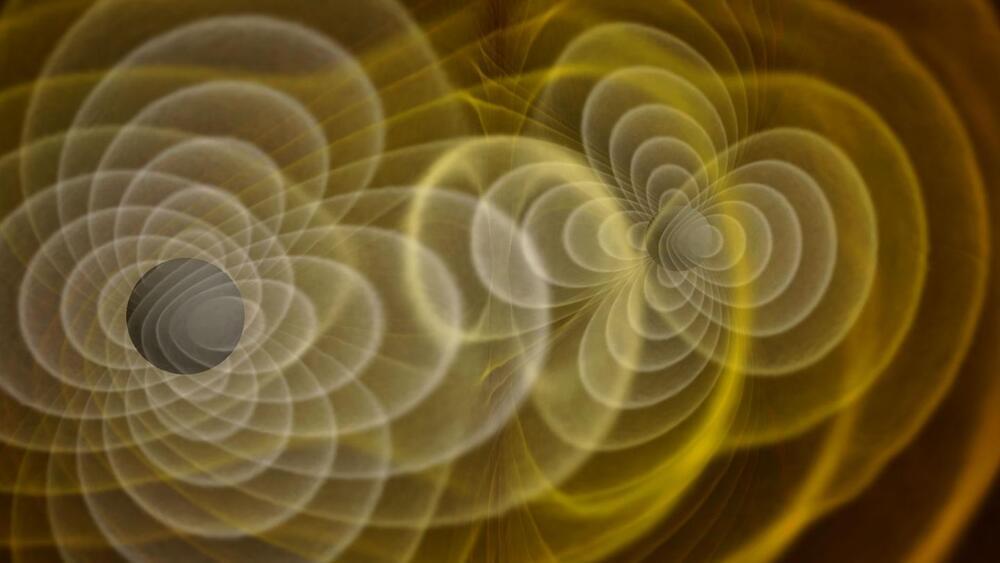

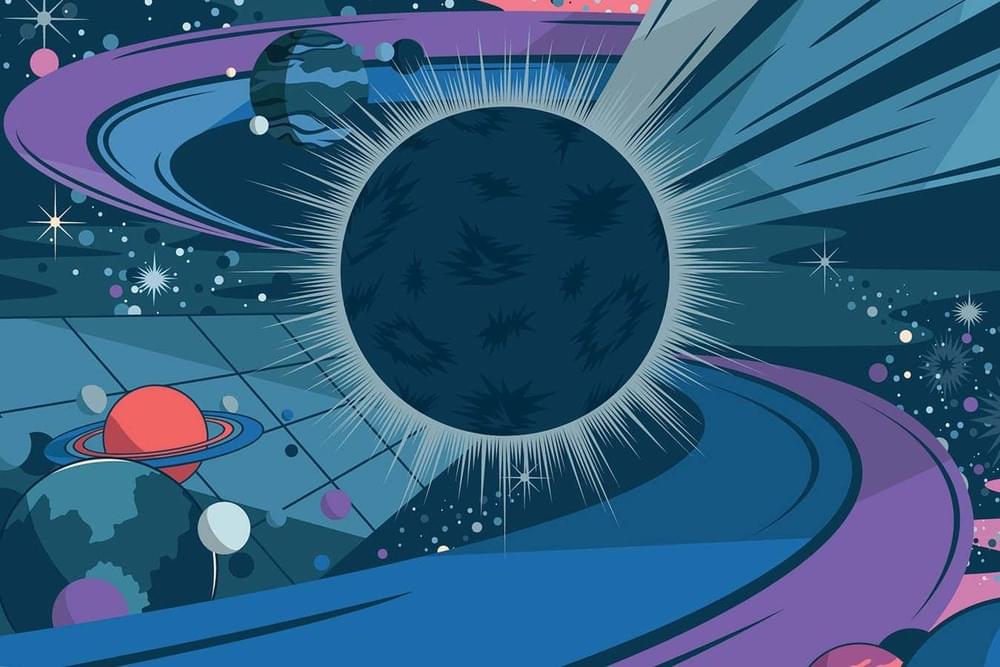
Astronomers say they have spotted evidence of stars fuelled by the annihilation of dark matter particles. If true, it could solve the cosmic mystery of how supermassive black holes appeared so early.
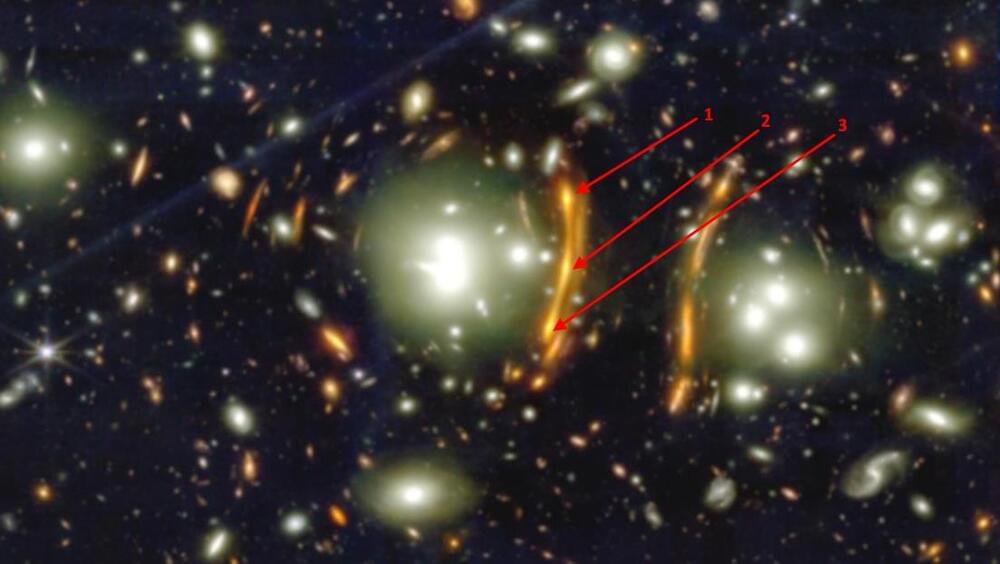
With future observations and as more time passes — both from new data and from data that’s still being analyzed and prepared by this collaboration — we may obtain the most precise and accurate measurement for the expansion rate of the Universe using the cosmic distance ladder method of all-time.
This triply-imaged supernova was not named “Supernova H0pe” in vain, as it really does give us hope that the answer to today’s greatest cosmic puzzle may indeed be written on the face of the Universe. With JWST going strong, we may have already found the galaxy cluster, and the gravitationally lensed system, that will resolve what’s been puzzling astronomers for the entirety of the 21st century.
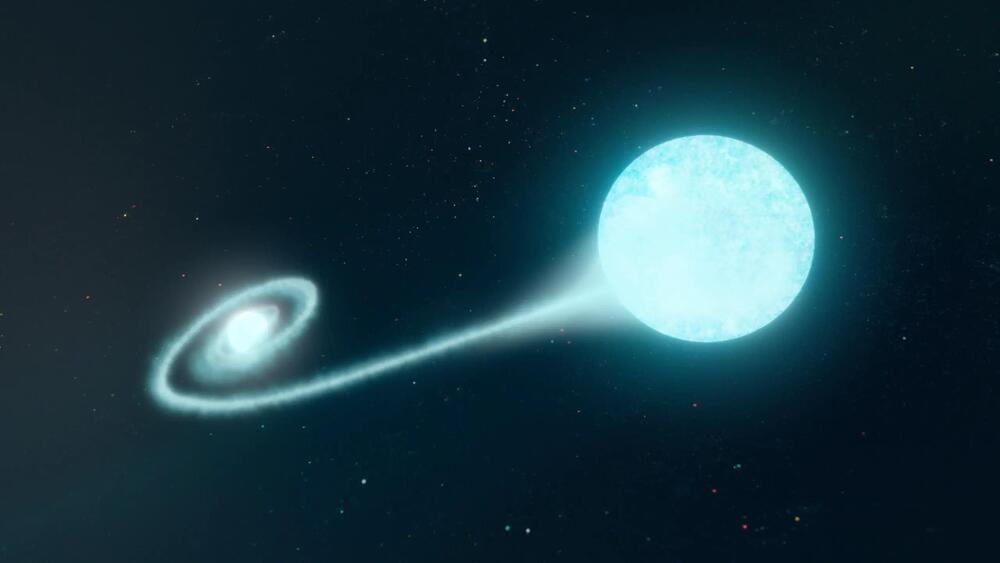
Astronomers have, for the first time, detected radio waves from a Type Ia supernova, uncovering new clues about white dwarf.
A white dwarf star is the remnant of star that has exhausted its nuclear fuel, but it lacks the mass to become a neutron star. A typical white dwarf is only slightly bigger than Earth, yet it is 200,000 times as dense.

A shadowy form of light within a universe of hypothetical particles is getting some serious consideration as a means of discovering the identity of dark matter.
According to a comprehensive new analysis under quantum chromodynamics, the dark photon is a much better fit for the observed results of particle collider experiments than the standard model of particle physics, by quite a wide margin.
In fact, a team of researchers led by physicist Nicholas Hunt-Smith of the ARC Centre of Excellence for Dark Matter Particle Physics and the University of Adelaide in Australia calculated a confidence level of 6.5 sigma, suggesting the odds that dark photons don’t explain the observations are in the ballpark of one in a billion.
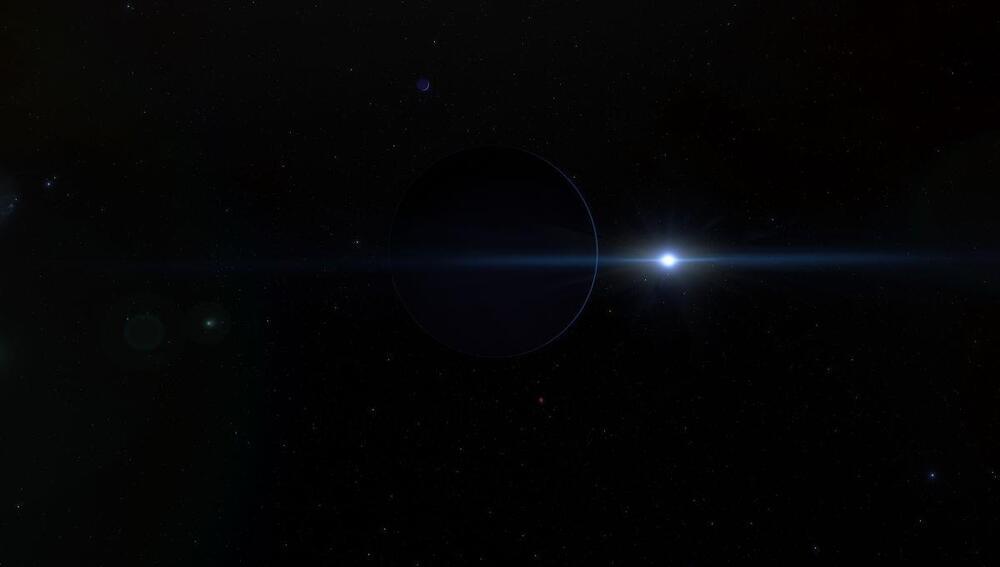
Most exoplanets that have been discovered over the last few decades happened to go around stars that are roughly the same size as the Sun. Some are a bit bigger and many a lot smaller. Planets have been discovered around pulsars, the extreme end product of supernovae, so astronomers expect that planets are to be found around the massive star that will one day explode as a supernova. Two such planets have recently been discovered and the whole setup looks like a blown-up version of our own Solar System.
The star in question is called μ2 Sco which is part of the Scorpius-Centaurus association. This is a group of young stars, no older than 20 million years. Among them, μ2 Sco (pronounced Mew two, yes like the legendary Pokemon) is a massive, blue, hot star that weighs about nine times our Sun. The observations conducted in this study suggest the presence of two candidate companions.
These are called CC0 and μ2 Sco b. The first has not been confirmed completely yet. It appears to have a mass of about 18.5 times that of Jupiter. The team is confident in the detection of the second one, which has a mass of about 14.4 Jupiters, so it gets the proper planet name. The team uses the term planet.

The curvature of space-time around a colossal mass has yielded the most detailed measurement of the cosmic distribution of dark matter yet.
Aided by a gravitational lens, a team led by cosmologist Kaiki Taro Inoue of Kindai University in Japan has mapped the mysterious form of matter on the smallest scale we’ve ever seen, with a resolution of just 30,000 light-years.
That might seem large, but when you consider that the Milky Way is about 100,000 light-years across, it’s more impressive. The researchers have been able to map something we can’t even see down to a scale less than a third of the size of our galaxy, across more than 7.5 billion light-years. That’s amazing.
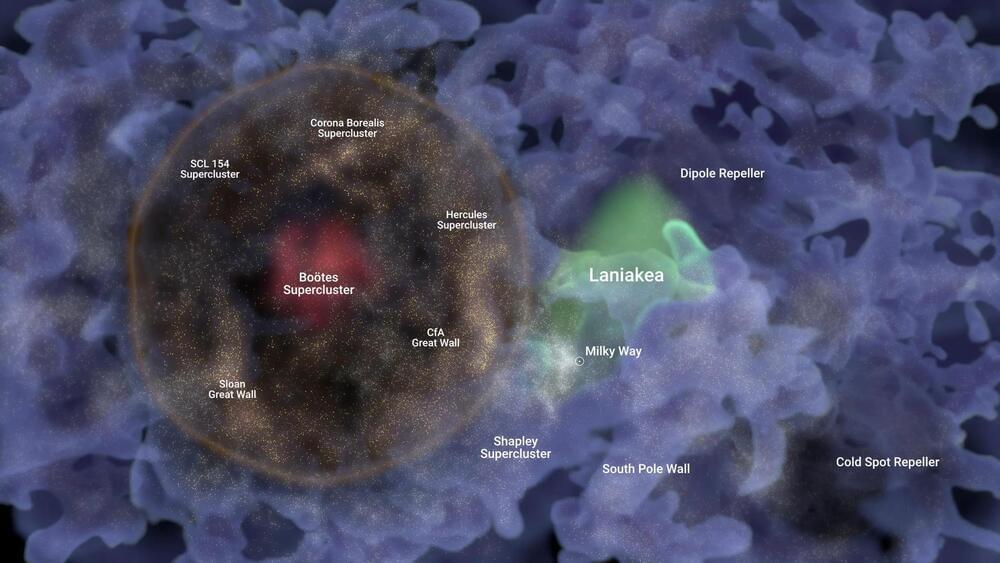
Astronomers have identified an immense bubble, Hoʻoleilana, 820 million light years away. This structure, believed to be a remnant from the universe’s inception and larger than predicted, offers valuable insights into galaxy evolution and the universe’s expansion dynamics.
A University of Hawaiʻi-led discovery of an immense bubble 820 million light years from Earth is believed to be a fossil-like remnant of the birth of the universe. Astronomer Brent Tully from the UH Institute for Astronomy and his team unexpectedly found the bubble within a web of galaxies. The entity has been given the name , a term drawn from the Kumulipo, a Hawaiian creation chant evoking the origin of structure.
The new findings published on September 5 in The Astrophysical Journal.

Dark energy is believed to have a negative impact on big structures, limiting the formation of such particles.
Contrary to earlier understandings based on Einstein’s theory of general relativity, research from the University of Michigan has now found that the pace of growth of these substantial structures is slower than expected.
Large cosmic structures are predicted to expand at a certain rate as the universe expands, with galaxy clusters and other dense areas expanding faster than empty space.
A look into the anatomy of these structures shows that our cosmos is woven with galaxies like a vast cosmic spider web. They are not distributed randomly. Instead, they assemble in groups. In reality, the early universe’s cosmic web began as small aggregates of matter that later developed into individual galaxies, galactic clusters, and filaments.
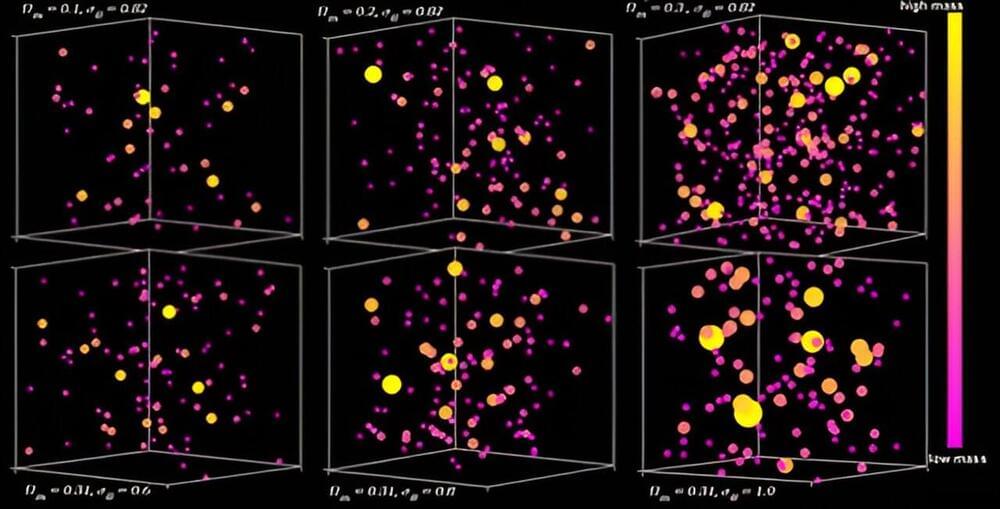
One of the most interesting and important questions in cosmology is, “How much matter exists in the universe?” An international team, including scientists at Chiba University, has now succeeded in measuring the total amount of matter for the second time. Reporting in The Astrophysical Journal, the team determined that matter makes up 31% of the total amount of matter and energy in the universe, with the remainder consisting of dark energy.
“Cosmologists believe that only about 20% of the total matter is made of regular or ‘baryonic’ matter, which includes stars, galaxies, atoms, and life,” explains first author Dr. Mohamed Abdullah, a researcher at the National Research Institute of Astronomy and Geophysics-Egypt, Chiba University, Japan. “About 80% is made of dark matter, whose mysterious nature is not yet known but may consist of some as-yet-undiscovered subatomic particles.”
“The team used a well-proven technique to determine the total amount of matter in the universe, which is to compare the observed number and mass of galaxy clusters per unit volume with predictions from numerical simulations,” says co-author Gillian Wilson, Abdullah’s former graduate advisor and Professor of Physics and Vice Chancellor for research, innovation, and economic development at UC Merced.